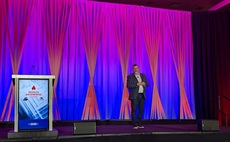IT security chiefs cannot keep pace with threats because vendors are holding them back
IT vendors are not ploughing enough funds into research and development to target new threats IT security professionals cannot keep pace with the changing nature of threats because vendors are ho...
To continue reading this article...
Join Computing
- Unlimited access to real-time news, analysis and opinion from the technology industry
- Receive important and breaking news in our daily newsletter
- Be the first to hear about our events and awards programmes
- Join live member only interviews with IT leaders at the ‘IT Lounge’; your chance to ask your burning tech questions and have them answered
- Access to the Computing Delta hub providing market intelligence and research
- Receive our members-only newsletter with exclusive opinion pieces from senior IT Leaders




















